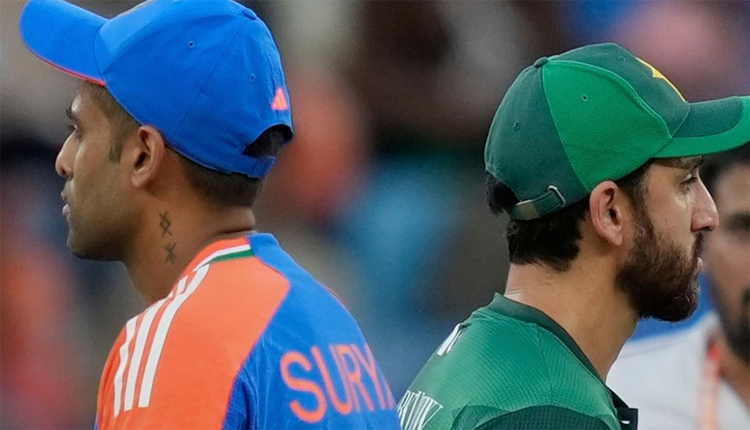Mumbai: Tensions simmered beyond the boundary ropes as India’s dominant seven-wicket triumph over Pakistan in the Asia Cup clash on Sunday ignited a fresh storm over post-match etiquette.
Led by skipper Suryakumar Yadav, the Men in Blue opted against the customary handshakes with their arch-rivals, a move that left Pakistan fuming and sparked debates on sportsmanship amid geopolitical undercurrents.
This refusal also included match officials, as Indian players quickly retreated to their dressing room with the doors shut after securing the win in Dubai’s sweltering heat.
The controversy erupted post India’s clinical chase, where Yadav’s explosive 47 anchored a comfortable victory, restricting Pakistan to a modest total through spin wizardry from Kuldeep Yadav and Axar Patel. Yet, the on-field heroics paled against the off-field drama.
Pakistan captain Salman Ali Agha boycotted the presentation ceremony in protest, a decision lauded by former pacer Shoaib Akhtar as a stand for dignity. “It’s a cricket match, not politics — show grace and move on,” Akhtar remarked, while ex-skipper Rashid Latif lambasted India, calling the snub a “lifelong stain” on their record. He invoked past conflicts, urging, “Wars happened before, but we always shook hands on the field.”
At the heart lies the question: Is handshaking mandatory under International Cricket Council (ICC) regulations? Delving into the ICC Code of Conduct: no explicit rule mandates it; instead, it emphasises the “spirit of cricket,” urging players to respect opponents, umpires, and the game. Article 2.1 stresses fair play, positive conduct, and congratulating rivals on successes, but violations like inappropriate physical contact fall under stricter clauses.
Historically, cricket’s unwritten code promotes post-match gestures — handshakes or glove taps — to foster camaraderie, yet refusals aren’t penalised unless deemed unsporting.
In this case, experts with decades in cricket governance argue it’s a grey area: no fines loom, but it erodes the game’s gentlemanly ethos. Yadav defended the stance, attributing it to BCCI and team management’s directive. “Some things transcend sportsmanship — we stand with our government and armed forces,” he stated, dedicating the win to victims of the recent Pahalgam terror attack.
The Pakistan Cricket Board (PCB) swiftly lodged a formal protest, with chief Mohsin Naqvi decrying it as a breach of cricket’s spirit. Coach Mike Hesson termed the reaction “natural,” while insiders revealed that the toss itself skipped handshakes at the match referee’s behest.
This episode, amid India-Pakistan’s fraught ties, underscores how off-pitch shadows — terror incidents, military skirmishes — bleed into sport.
As the Asia Cup progresses, will the ICC intervene? At the moment, the rift continues to widen, demonstrating the fragility of cricket’s diplomacy.



Comments are closed.